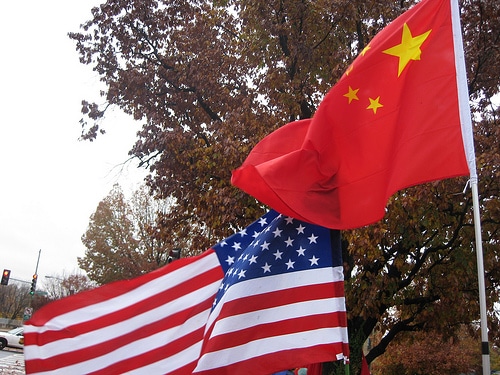My father often delights in revisiting the impetuous statement I made as a four-year-old arriving in the U.S. for the first time: “Chinese people will never be Americans, and Americans will never be like the Chinese.”
Growing up in Southern California, living mostly in diverse ethnic minority communities, I did not have to deal with challenges to my self-image and cultural values. At least not in the way that issues of cultural identity have now manifested in nearly every corner of my life as a young 20-something. I realized that growing up in such a diverse community prevented me from probing deeply into my identity. Like many immigrant peers around me, I grew up believing that my parents moved me to America to make this my permanent home.
After I graduated from college, however, I began to think about moving back to China would be the best choice. I had many reasons to move back: U.S. job opportunities were at an all-time low; I had no family members to rely on in times of emergencies since they all moved back to China once I graduated from high school; I was accepted into a graduate program that neither I nor my family could afford. The many ethnic Chinese expatriates I’ve met have used a similar rationale to explain to puzzled family members and friends that they are making the conscious choice to leave home—home, which was America for as long as I can remember, and home, which I now cannot define.
I finally made the bold move to leave all the comforts of America — the country I had called home for as long as I remember — and I’m currently working towards a master’s degree in public policy at Tsinghua University in Beijing. Since I returned to China, so much of what I thought I knew has been turned upside down, from miniscule daily life struggles like accepting squat toilets to sharing an open and continuous dialogue with peers who are openly anti-Western and conservative in their own right. My previous confidence in claiming to be knowledgeable in China and Chinese people has been dramatically reshaped by those who boldly told me, “What you read is not true.” The most distinct turning point was starting school at Tsinghua, where my range of experiences with locals finally departed from family life and into society at large. Despite challenges in a completely different academic atmosphere and conflicts perhaps arising from a fundamental inability to meet at the same cognitive spot, I cannot imagine any other scenario in which I would’ve been given the chance to so thoroughly question and redefine myself. In this way, coming back to China has been a blessing.
Living and studying in Beijing has removed the passive element in my relationship with my native country, and even though it seems clear now that I will continue to struggle with its complexities, I nonetheless feel more grounded and certain about who I am.
To return to the four-year-old me — is it possible to be both American and Chinese? Presently, my understanding of identity is much less cemented in some recognizable “substance within”, but rather in the more tenuous idea that our identities have the possibility of changing with every physical space that changes. As much as we emphasize consistency, especially with what we see in the mirror every morning, national and ethnic labels do not have to conflict on a spiritual level, even if on paper, they are from two different worlds.


